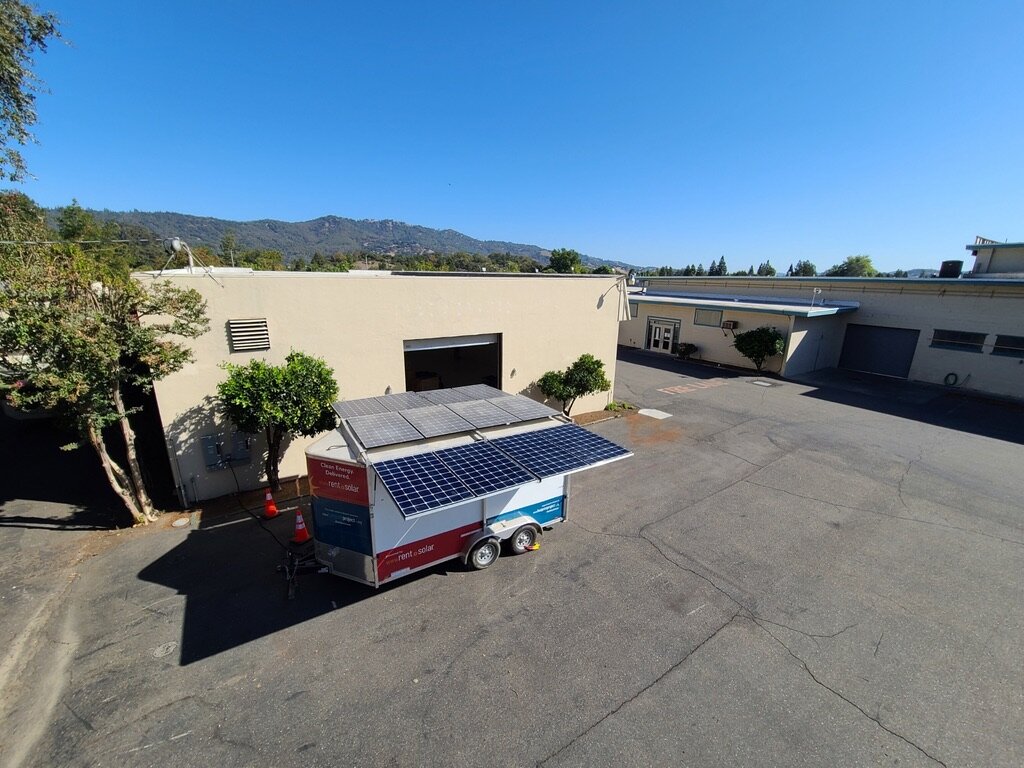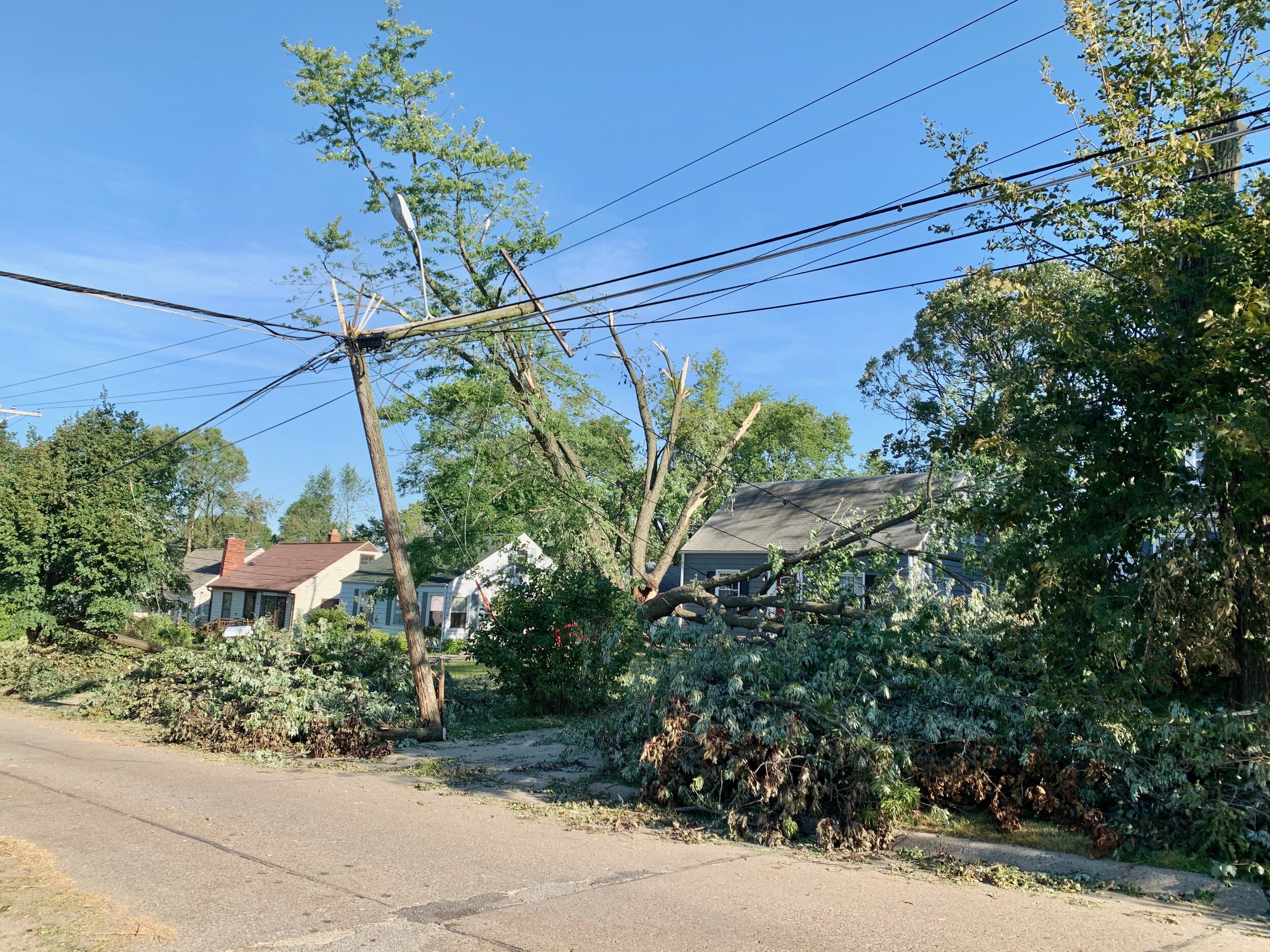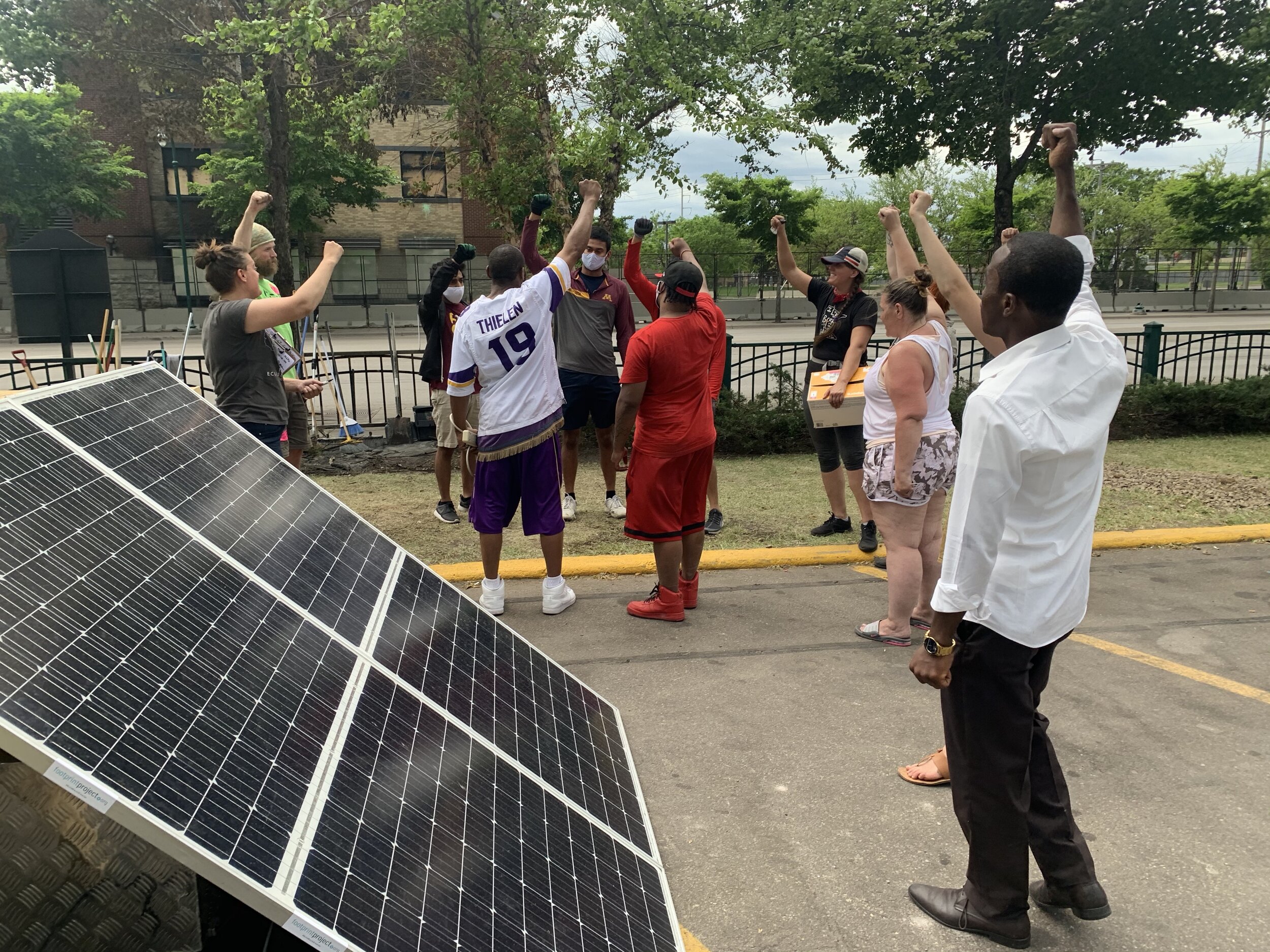
FOOTPRINT PROJECT BLOG
From relief to resilience
IMPACT
We’ve deployed 250+ kW of mobile solar
and 700+ kWh of mobile battery storage
to 25+ disaster response and recovery missions,
providing emergency clean power access to 50,000+ people.
IN THE FIELD

The “solar cavalry” is coming to the rescue in New Orleans
Utility workers are slowly bringing electricity back to Louisiana and Mississippi after Hurricane Ida wiped out much of the region’s power grid in the dawn hours of Aug. 30. But much of the region remains in the dark: 843,000 homes and businesses were without power as of the evening of Sept. 1, only about 11% less than immediately after the storm.

Serendipity — and Generous Donors — Helped the Footprint Project Bring Solar to Desperate Texans
“We jump at every single opportunity to mobilize solar generator resources during a disaster to support long term recovery and be available for the next one in that region.”

Clean Energy Leaders Deploy Solar Equipment for Winter Storm Recovery
In February of 2021, the state of Texas began facing an ongoing crisis of water shortages, power outages, and extreme freezing weather conditions. Two storms- Uri and Shirley, caused record low temperatures reaching -2 degrees F, the coldest Northern Texas has been in 72 years. In response to requests from local responders, Footprint Project activated our Solar Energy Rapid Response Team (SERRT) to support Texas’s recovery. Beginning on February 21st, Footprint Project deployed solar equipment to power mobile communication and remote charging needs for the Information Technology Disaster Resource Center (ITDRC) and Fayette County Emergency Management (FCEM).

California Wildfire Response
Currently, our Solar Emergency Response Team (SERT) is in California to provide support by deploying clean energy to communities in need. So far, we have focused our limited clean energy resources on multiple partnerships that focus on different aspects of the preparedness and recovery of disaster relief.

Mobile Power for the People: Building Back Greener in Puerto Rico
As summer comes to a close, a new door opens. The largest mobile solar generator microgrid Footprint Project has ever built is bringing mobile, sustainable power to communities in Puerto Rico.
The completion of this microgrid is crucial for the island’s disaster relief recovery. As back-up diesel generators continue to fail when communities deprived of power need it most, a solar generator microgrid will provide reliable, sustainable energy to people who no longer have to depend on a failing central power source.

Electric Chainsaws for Debris Removal for Iowa Recovery
As citizens regained power in the following week, the Solar Energy Rapid Response team (SERRT) returned their solar trailer to Minneapolis and donated two electric chainsaws to assist NECHAMA Jewish Response to Disaster as they stayed in Cedar Rapids, Iowa.
Electric chainsaws are proving to be essential for disaster recovery and volunteer training because they are quiet, light, and do not require gas.
These chainsaws were used for debris removal--the most powerful electric chainsaws can cut through diameters of two feet or more. According to city workers in Cedar Rapids, it will take at least a month to remove all the debris to open up essential streets.

Iowa Storm, Rapid Response
On Monday afternoon, the National Weather Service declared a one out of five “marginal risk” warning. They did not predict that a 100 mile per hour wind derecho would leave over 200,000 citizens in Iowa bereft of power. A derecho is a spanish term meaning “straight ahead,” and is defined as a line of intense fast-moving, damaging windstorms occasionally accompanied by thunderstorms. This type of environmental disaster is notoriously rare and difficult to predict. Although the average wind speed in these straight line storms is 50 to 70 mph, this derecho was particularly fierce, with a record 110 mph, resulting in hurricane force winds in Iowa.

What's Happening in Puerto Rico?
Severe weather forecasts indicate a brutal 2020. The U.S National Oceanic and Atmospheric Administration predicted 13-19 named storms, the majority of which will become hurricanes before reaching landfall*. As resources are already stretched thin in response to COVID-19 and the economic fall-out, first responders are concerned about what this means for disaster relief in places that are still recovering from past environmental emergencies. Recovery has been especially difficult on the islands of Puerto Rico.

Climate Justice for Social Justice: Building Back Together
Our base of operations has had an eventful and demanding early summer. While we traditionally respond to environmental disasters, our work in Minneapolis has focused on empowering our community in the wake of the tragic murder of George Floyd. Footprint Project has partnered with community organizations on three solar deployments to energize relief spaces, memorials, and displaced-persons encampments.

Empowering a Covid-19 Clinic in Matamoros, Mexico
In April of this year, the Footprint Project partnered with Global Response Management (GRM) to power the COVID-19 Clinic for the Matamoros Refugee Camp. The Footprint Project provided a solar tent and trailer which became the first operational Solar Powered COVID-19 Clinic supporting doctors and medics.

Our Response to Tennessee Tornadoes
As COVID-19 began spreading across the United States in the early months of 2020, two devastating EF3 tornadoes hit Nashville and Chattanooga. These tornadoes rendered many neighborhoods and communities without shelter or power.

Puerto Rico Earthquake Deployment
In early January, a swarm of earthquakes began striking off the southern coast of Puerto Rico, crippling centralized power production and leaving thousands displaced from their homes. Footprint Project’s responders were some of the first volunteers to begin relief efforts.




